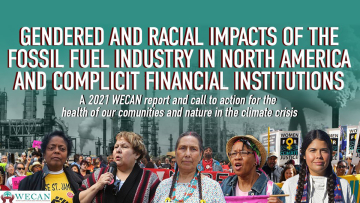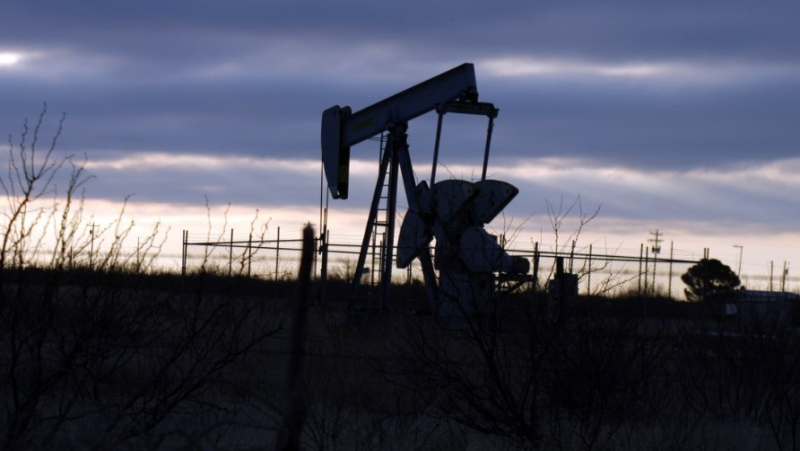
Project – On record
This profile is no longer actively maintained, with the information now possibly out of date
Project – On record
This profile is no longer actively maintained, with the information now possibly out of dateWhy this profile?
The Wink to Webster Pipeline would enable expansion of extraction activities in the world's most prolific oil basin, locking in decades of overproduction and threatening the health of communities near the fracking sites.
What must happen
The banks financing the companies involved with this project should demand their clients to withdraw from this project, or they should withdraw their financial support for these companies all together.
| Sectors | Pipeline Transportation of Crude Oil |
| Location |
|
| Status |
Planning
Design
Agreement
Construction
Operation
Closure
Decommission
|
| Website | http://www.winktowebsterpipeline.com |
|
|
This project has been identified as an Equator Project |
The Wink to Webster Pipeline is a planned 650 mile (1,046 kilometer) pipeline that would run from the Permian Basin in west Texas to the Gulf Coast near Houston. When completed, the pipeline will carry over one million barrels of fracked oil per day. The project is a joint venture of ExxonMobil, Plains All American Pipeline, MPLX, Delek US, Lotus Midstream, and Rattler Midstream LP. Operations are planned to commence in the first half of 2021 (IJGlobal).
Social and human rights impacts
The oil and gas boom in the Permian Basin is already having severe impacts on local people at current rates of extraction, which are under five million barrels of oil per day. These impacts will only worsen as the Wink to Webster Pipeline facilitates the addition of an unexpected million additional barrels of capacity.
Public health The coal and gas industry in the Permian Basin causes heavy air pollution which exceeds federal health standards. The emissions of sulphur dioxide and hydrogen sulfide have severe consequences for the health of people living in the area. Sulfur dioxide affects the human respiratory system and makes breathing difficult. Especially young children, elderly people and people suffering from asthma are sensitive to sulfur dioxide. The pollutant can also penetrate the lungs and cause additional health problems when it reacts with other compounds in the atmosphere. Hydrogen sulfide, which is also emitted in the Permian Basin, can cause headaches, breathing difficulties as well as irritations of the eye, nose and throat. When people are exposed to hydrogen sulfide for a longer time, they can experience miscarriages, poor memory and dizziness. High concentrations of the pollutant can even cause coma and death.
Natural resources The industry puts on the area's limited natural resources, especially water. Research by the Center for American Progress found that around 60% of the federal oil and gas drilling leases that have been offered since 2017 are located in areas at risk of water shortages and droughts.
Other social impacts:
- Cost of living The cost of living in the area has increased quickly, a development that especially affects the people who are not working in the oil industry.
- Staffing shortages Outside of the oil industry, people are experiencing staffing issues. For example, dumpsters overflow as there are not enough garbage truck drivers to pick up the waste and students get to school late because there are not enough bus drivers to take them.
- Crime rates Crime rates in the region are reported to be on the rise. The influx of temporary workers has increased drug use, trafficking and theft.
- Traffic accidents Due to the operations in the Permian Basin, more heavy trucks take part in the usual traffic. The Guardian reports that traffic accidents have increased.
For more information on the gendered and racial impacts of the fossil fuel industry in North America, including this pipeline, see WECAN's 2021 report "Gendered and Racial Impacts of the Fossil Fuel Industry in North America and Complicit Financial Institutions".
Environmental and climate impacts
Carbon bomb When in operation, the Wink to Webster Pipeline would help to unleash one of the world's largest carbon bombs. The pipeline is projected to carry over one million barrels of crude oil every single day. With these amounts of oil, the pipeline would be responsible for the emissions of 153 million metric tonnes of CO2 every year (calculation based on 2006 IPCC Guidelines for National Greenhouse Gas Inventories).
Between 2018 and 2050, oil and gas production in the Permian Basin could exhaust close to 10% of the entire world's carbon budget that is left for staying within 1.5°C of warming. In 2029, the Permian Basin could be extracting as much oil as Saudi Arabia does today.
Impacts of fracking The Wink to Webster Pipeline is developed to transport fracked oil from the Permian Basin to the Gulf Coast. The fracking boom in the US is incompatible with the clean energy transition that is needed to tackle the climate crisis. Scientific research also shows that the employment of fracking negatively impacts public health, water, soil and air. Other negative impacts include increased seismic activity and damage to neighbouring economic activities.
Air pollution A report published by the Environmental Integrity Project in 2019 found that the air pollution caused by the oil and gas industry in the Permian Basin exceeds federal health standards. Besides the health problems these pollutants cause, sulphur dioxide and hydrogen sulphide negatively impact the environment. The pollutants can acidify soil and water, and harm trees and plants. In reaction with other compounds in the atmosphere, the pollutants can also form haze that reduces visibility in nature areas. Importantly, sulphur dioxide is one of the pollutants forming acid rain which is harmful for plants and animals.
Methane leaks Major leaks of methane have been observed in the Permian Basin. Methane is highly destructive to the climate, as it is a greenhouse gas helping to warm the planet.
The Wink to Webster Pipeline project is expected to cost more than USD 2 billion. The joint venture consists of Delek (15%), Plains All American (20%), ExxonMobile, MPLX (15%), Lotus Midstream and Rattler Midstream. These companies have each put up their part of equity finance for the total USD 2.26 billion finance of the pipeline (Delek sec.gov filings Q2 2019). Banks and other financial institutions have provided finance to these companies in the form of credit facilities, corporate loans and underwriting services:
- Plains All American, a USD 2.5 billion credit facility, per 31 Dec 2019 (annual report 2019);
- MPLX and Delek combined, a USD 608 million corporate loan, to finance their 30% combined equity share in the joint venture, 21 Febr. 2020 (MPLX annual report 2019);
- MPLX, bond issuance USD 5.5 billion, 2018 (IJGlobal, all rights reserved 2020);
- Rattler Midstream, a USD 600 million credit facility, May 2019 - May 2024 (sec.gov 8-k filings May 2019).
Lotus Midstream, founded in 2018, received an initial investment of USD 400 million by EnCap Flatrock Midstream in 2018 (oilandgas360.com).
